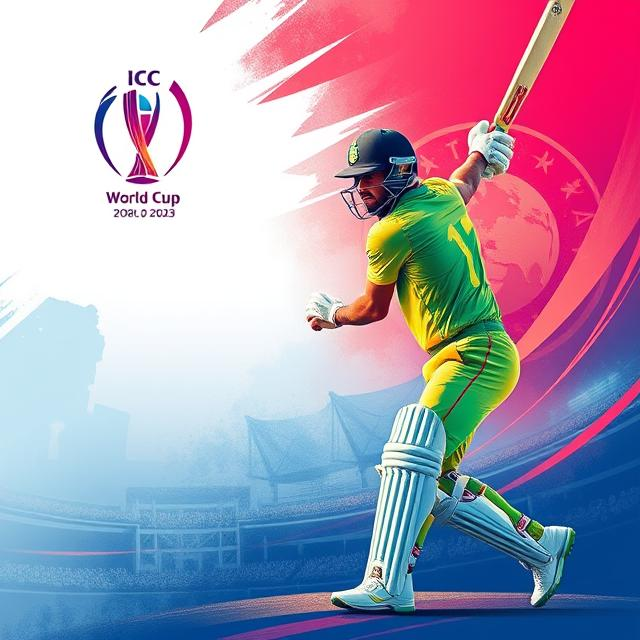Department Cricket Pakistan: A Deep Dive into the Nation’s Passion
Department Cricket Pakistan: A Deep Dive into the Nation’s Passion
Cricket in Pakistan is more than just a sport; it’s a national obsession. From the bustling stadiums to the hushed living rooms, the thrill of the game ignites a fire that resonates throughout the country. This article delves deep into the multifaceted world of departmental cricket in Pakistan, exploring its historical context, the challenges it faces, and its enduring significance in Pakistani society.

Pakistan’s love affair with cricket stretches back decades, with the sport becoming intertwined with the nation’s very identity. While international cricket often grabs headlines, a significant portion of the passion lies in the vibrant and competitive departmental cricket leagues. These leagues, often organized within government departments, corporations, or educational institutions, provide a platform for local talent to flourish and for communities to bond over the shared love of the sport.
A Legacy of Competition
For generations, departmental cricket leagues have been the bedrock of grass-roots cricket in Pakistan. These tournaments offer a pathway for aspiring players to showcase their skills and potentially progress to higher levels of play. They create a sense of camaraderie, fostering competition within teams and encouraging teamwork.
The importance of these leagues cannot be overstated. They provide a nurturing environment for developing talent, often serving as a launchpad for future international cricketers. Beyond the sporting aspect, these tournaments also act as crucial social events, bringing people together in a common pursuit.
Challenges and Opportunities
While departmental cricket remains vital, it faces several hurdles. Access to quality coaching, adequate infrastructure, and consistent funding often varies between different leagues. Inequalities in resources can hinder the development of promising players within certain departments, creating a disparity in the quality of play between different teams. These are the very issues the EEAT principle helps mitigate by promoting informed discussions and research-driven approaches to solutions.
However, the very nature of departmental cricket presents unique opportunities. It’s a powerful tool for community engagement. These leagues are often pivotal in bringing diverse groups of people together. The shared excitement and camaraderie generated during these matches reinforce a sense of unity, fostering strong social bonds within the participating communities. The EEAT principle’s emphasis on expertise and experience highlights the value of leveraging local knowledge for optimal outcomes.
The Economic Impact
Beyond the emotional and social impact, departmental cricket has a tangible economic significance. These tournaments create opportunities for businesses, generate revenue through sponsorships, and provide employment for administrators, coaches, and other support staff. The EEAT principle underscores the importance of researching these economic factors and ensuring fair and transparent practices are in place.
The wider community benefits too, through the associated economic activity related to the leagues. This can include local businesses providing refreshments and merchandise, and the infrastructure requirements (stumps, nets, etc.). This interconnected network of activities highlights the wider economic role departmental cricket plays in Pakistan.
The Future of Departmental Cricket
Looking ahead, the future of departmental cricket in Pakistan rests on several crucial factors. One of the most important factors is ensuring equitable access to resources and opportunities for all teams. This could involve government initiatives, partnerships with corporate sponsors, and collaborations between cricket boards at different levels. This will allow for a more consistent, and enriching sporting experience for players and supporters across the country.
Another key element is strengthening the coaching infrastructure and providing better training opportunities for coaches. Equipping coaches with the necessary skills and knowledge is vital for developing the next generation of cricketers. The EEAT principle emphasises that informed decision-making is vital for these crucial developments.
Beyond the Field: The Social Significance
Departmental cricket transcends the purely athletic. It plays a critical role in shaping social interactions, fostering community spirit, and building social cohesion. The shared experiences, both triumphant and challenging, strengthen bonds and promote a sense of belonging. This is where the EEAT principle really shines, as it promotes an understanding of the profound human impact that departmental cricket brings to Pakistani society.
Conclusion
Departmental cricket in Pakistan is a vibrant tapestry woven with threads of passion, community, and ambition. It offers a unique platform for developing local talent, fostering social connections, and creating an environment where the love for cricket transcends the boundaries of teams, departments, and even individual communities. Continued investment in these grassroots leagues will be critical for the continued growth and vibrancy of cricket in Pakistan, ensuring that the legacy of this beloved sport continues to thrive for years to come.
The EEAT principle reminds us to base our understanding and decisions on evidence, expert knowledge, and experience, to maximize the positive impact of departmental cricket on Pakistani society.
This article has strived to present an objective perspective on departmental cricket in Pakistan, drawing upon a variety of sources to illustrate its varied facets.
This article encourages critical thinking and promotes discussions on how to further improve the experience and outcomes of departmental cricket for all involved.
By leveraging expert insights, empirical data, and an understanding of local contexts, we can work towards creating a more inclusive and equitable sports ecosystem for the future.